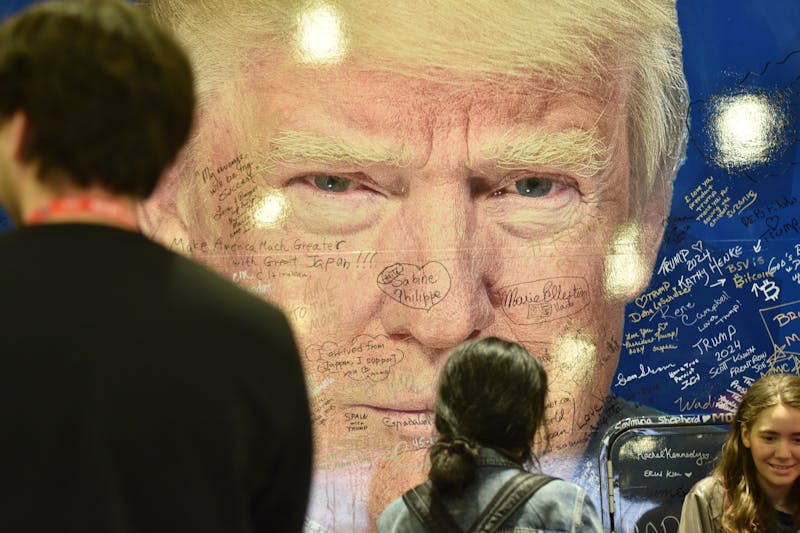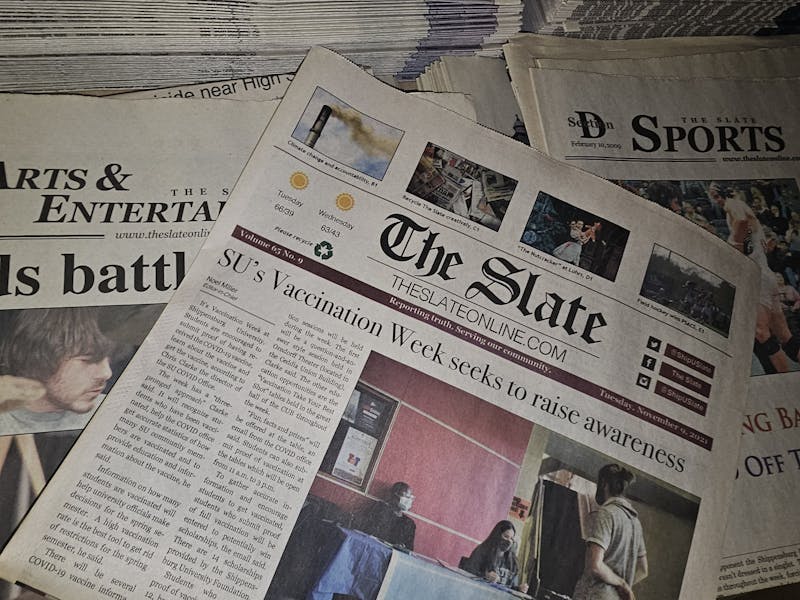When is it okay to use the N-Word? Well, never. But there are varying degrees of badness, and everyone has a different scale of what is evil and what is okay. But there are two sides to the N-Word’s usage, and the other side is hearing the N-Word. Even then, the way it is received depends on the person hearing it. In other words, it’s not a one-size-fits-all misery.
So, to help break this down I have composed a hierarchy of horror using actual horror movies so that people can see the differences in their use and their reception.
Level 1:“Sharknado.” This may have been a scary movie to some people, but it is also still a movie that has Tara Reid, so we must ask: how scary can it be? Also, the name does justice to a tornado that has sharks in it. This is the least scary, almost comical level, and can be produced when Black people use it among other Black people.
Reception: Yikes!
Level 2: “Child’s Play.” As some may know, this movie is about a doll. Yes, a doll that viciously murders people. Chucky the doll is indeed scary looking, and there are some voodoo rituals involved, but it’s still a doll. Not the worst. Still not good. This is akin to when a white person uses the N-word while singing along to a song that uses it. No malice, but still ignorant.
Reception: OMG - no.
Level 3: “Get Out.” The movie “Get Out” was petrifying because the situation it depicts is unlikely. …but not impossible. “Get Out” was scary, especially for the Black community, but not enough to give you nightmares. This level is akin to when white people say the N-word when quoting directly from a text, claiming its use is vital in the name of “art.”
Reception: What the hell? WHY?!
Level 4: “Saw.” This movie is very scary because it's twisted, sick and in the end, it’s all about terrible choices and selfishness. This is analogous to when white people say it and justify its use by stating: “I didn’t mean it in a hateful way” or they “feel Black” or they “don’t see color” or they use the word for a productive purpose. For example, a professor using it in a class.
Reception: Keeps you up at night and makes you want to change majors.
Level 5: “The Human Centipede,” a movie so disturbing it was banned in some countries and should be banned in all. This is parallel to when a white person says it directly to a black person as an attack. As this movie was banned in some countries, so too should the gut-wrenching feeling of hearing this word hurled at you in a hateful way.
Reception: Crushing, existential pain.
The problem with using the N-Word is that its use does not end with the person who uses it; there is almost always someone at the receiving end of its use, whether the speaker knows it or not. And in the case of this word, intention doesn’t really matter all that much. Even though the levels of discomfort Black people feel when they hear it vary from person to person, the word has only ever been used in a hateful manner and as an insult.
When a Black person hears this word from a white person, it’s traumatic and the mental and emotional gymnastics begin. I am sure that all Black people have experienced all five levels of N-Word reception from “Sharknado” to “The Human Centipede.” I know I have, and I can only speak from my own experience. Last semester, I endured a Level 4: “Saw” incident and this was my emotional trajectory:
I went from shocked through the levels of denial, first small then significant: I didn’t want to believe I just heard the word in my classroom and from a professor at that. I then became livid because the situation was both unfair and came as a shock to my system. This morphed into confusion about how to navigate through what would have to come next: do I have to smile and say it’s okay? Is the professor going to use the word again? Do I have to confront him or tell his department chair that he makes me uncomfortable? Will there be backlash to me as a student? I became scared about the consequences of the situation I was in, concerned for my future, and I doubted myself, wondering if I was right to feel all the feelings I had. Mostly, I felt that I had no control over a bad situation that I was flung into. Even worse, I knew this kind of roller coaster ride was one that ran on a loop, and it would happen again.
I don’t think that it’s fair to compare the N-word to other bad words because of its unique history and the trauma connected to it. It was first used to degrade an entire race, and then used only as a disparaging word for a member of this specific race. The harm stems from its specificity: it is not just that the target of the word is being slammed for something, they are being slammed for being black at the same time. We know it’s a terrible word because any white person who uses the word immediately justifies its use, knowing they must: “I used it for the sake of art”, “I used it because I have Black friends,” “my third cousin is Black” or “I don’t see color.” And please don’t use that last one.
While I do not think anyone should use this word, some Black people disagree and think they should be allowed to say it. A common reason being it is a way to assert our blackness into white spaces because it should be a word that can only be used by you. Then white people feel that they should be allowed to as well, as though they are being excluded from something. Please trust me: Black people know about exclusion. What I am asking for is consideration about its use. Ask yourself some questions first. Will my use of the N-Word scare an unsuspecting student like “Get Out” did? Is the casual use of the N-Word allowing other people to use it too, which will scare other Black people? And perhaps the biggest question of all: Why do I want to use this word so badly?
There are dictionaries of words to use. Let’s not use this one. Ever.




The Slate welcomes thoughtful discussion on all of our stories, but please keep comments civil and on-topic. Read our full guidelines here.